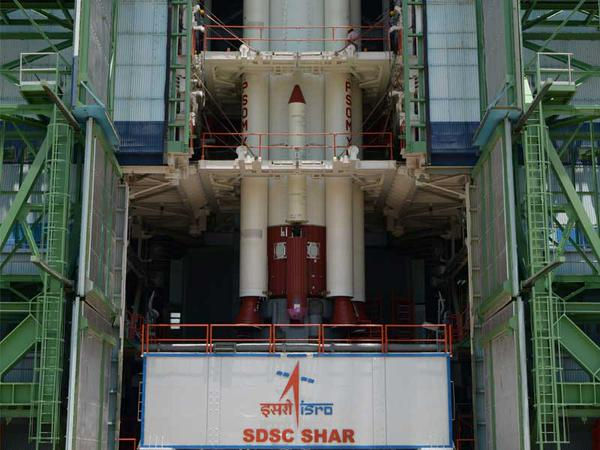🚀 ISRO Scripts a Stellar Chapter in India's Cosmic Journey
- Admin
- Sep 28, 2015
- 3 min read
🌌 ASTROSAT: India's First Space Observatory Takes Flight into the Infinite
In a moment that makes every Indian heart swell with pride and every skywatcher beam with wonder — ISRO has once again made history. With the majestic roar of the PSLV-C30 soaring into the skies from Sriharikota, India's first multi-wavelength space observatory – ASTROSAT – has officially begun its celestial quest.
This isn't just a launch — it's a leap for Indian science, a salute to human curiosity, and a symbol of our ascent into the vast cosmos.

🛰️ A New Eye in the Sky
Unlike traditional satellites focused on Earth or communication, ASTROSAT is a window to the stars. It’s a powerful space observatory that can simultaneously observe the universe in optical, ultraviolet, and X-ray wavelengths — a rare capability matched only by a few global giants like NASA and ESA.
A marvel weighing 1,513 kg,
launched at a cost of ₹180 crore,
ASTROSAT is India’s answer to the mysteries of the universe. Its mission?
🔭 To decode the invisible,
🌠 To map the unknown,
🕳️ And to peek into the secrets of neutron stars, black holes, and the birthplaces of galaxies.

🧠 Science in Symphony
Here’s what makes ASTROSAT truly brilliant — it brings five scientific payloads together, working in harmony like a cosmic orchestra:
🔬 UVIT (Ultraviolet Imaging Telescope): Captures the sky in visible and ultraviolet light, helping us understand galaxy formation and evolution.
🌌 LAXPC (Large Area X-ray Proportional Counter): Studies time-based changes in X-ray sources, including black holes and neutron stars.
☄️ SXT (Soft X-ray Telescope): Observes soft X-rays to trace the temperature and chemical makeup of space bodies.
💥 CZTI (Cadmium Zinc Telluride Imager): Detects high-energy X-rays, extending India’s capability to study powerful cosmic events.
🌠 SSM (Scanning Sky Monitor): Constantly scans the heavens to spot transient X-ray sources like stellar explosions or flaring stars.
🌍 A Global Collaboration in an Indian Rocket
Launched alongside ASTROSAT were six foreign satellites from the USA, Canada, and Indonesia — showcasing ISRO’s role as a trusted global launch partner. In fact, this marks the first time ISRO carried US Nano satellites — a proud milestone in Indo-global scientific ties.
🧭 Managed with Precision
Once in orbit, ASTROSAT is now being steered by ISRO’s Mission Operations Complex (MOX) in Bengaluru — the control room where the heartbeat of Indian space missions is monitored 24/7.
The satellite’s data will be processed and distributed by the Indian Space Science Data Centre (ISSDC), with participation from leading Indian institutions and universities, ensuring the mission strengthens India’s research ecosystem for generations to come.
🔭 What ASTROSAT Will Help Us Discover
Understand high-energy cosmic events and black hole behavior
Detect new and transient X-ray sources
Estimate magnetic fields of neutron stars
Observe stellar birth zones and galaxies beyond the Milky Way
Conduct deep-sky ultraviolet surveys to unravel the story of our expanding universe
🇮🇳 A Moment of National Pride
From Mangalyaan's Mars triumph to now ASTROSAT’s stellar launch, ISRO is scripting a golden era of Indian space science.
With each mission, we’re not just launching rockets —🌟 We’re launching dreams,🌌 igniting curiosity,🚀 and proving that India’s journey to the stars has truly begun.

📝 Editorial Note | संपादकीय टिप्पणी
"जब भारत के वैज्ञानिक अंतरिक्ष में तारों को निहारते हैं, तब केवल उपग्रह ही नहीं उड़ते – उड़ते हैं करोड़ों भारतीयों के सपने। ASTROSAT एक युग की शुरुआत है – ऐसा युग जहाँ हम स्वयं ब्रह्मांड के रहस्यों के द्वार खोलेंगे। युवा वैज्ञानिकों के लिए यह एक आह्वान है – अपनी कल्पना की उड़ान दो, भारत तुम्हारे साथ है।"
"When Indian scientists gaze into the universe, it is not just satellites that take flight — it’s the dreams of a billion people. ASTROSAT marks the dawn of an era where India will unlock the mysteries of the cosmos. To our young dreamers — soar high, for the nation soars with you."
📣 Congratulations, ISRO!You've not only touched the sky —🌠 You've lit up the stars with the tricolor.
Comments